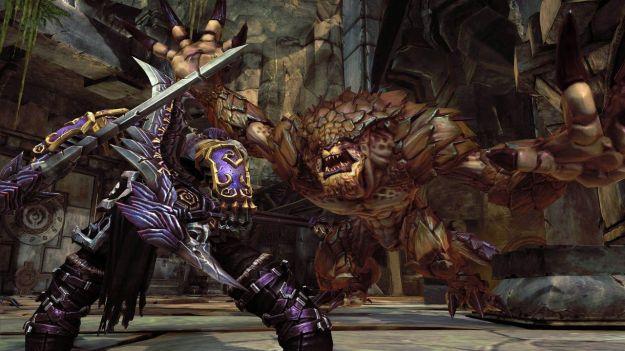
THQ has narrowly avoided another scenario that could potentially lead to its closure. As shares in the company’s stock have plummeted from highs above $330 per share in 2007 to trading prices below $1 at the beginning of the year, the troubled video game publisher was in danger of being delisted from the NASDAQ stock exchange. On Tuesday the company announced that shares have met the minimum bid price required by NASDAQ.
“[THQ] has received notification from NASDAQ that it has regained compliance with the minimum bid price rule for continued listing on The NASDAQ Global Select Market because the bid price of its common stock has closed at $1.00 per share or greater for at least 10 consecutive business days,” read a statement THQ issued to investors.
THQ was threatened with delisting in January. After 30 days of THQ shares trading below $1, NASDAQ issues a delisting notice to the company. High-profile failures like the uDraw Tablet, lower than-expected sales for games like Red Faction: Armageddon, Homefront, and others, as well as the shift away from lucrative licensed products crushed THQ’s earnings and shattered investor confidence in the company. The publisher had until Jul. 23 to raise its share price above $1.
At the beginning of July, THQ announced a reverse stock split for its investors. A reverse stock split cancels out existing shares in the company, replacing them with a smaller number of shares, with the goal of increasing share value. In THQ’s case, 10 old shares in the company were consolidated into 1 single new share. That new share is worth ten times the original single share price.
Reverse stock splits do increase the value of shares in a company but they generally viewed as desperate moves to keep a failing business alive. THQ managed to raise its value ahead of its delisting deadline, but what chance is there that the publisher will be able to maintain investor confidence for long enough to keep share prices strong?
Heading into the holiday season, THQ doesn’t have a single release scheduled that can compete with sales titans like Call of Duty: Black Ops 2, Assassin’s Creed III, or any others. Its biggest release is Darksiders II expected out in August. The original Darksiders sold moderately well when it released in 2010, moving about 1.2 million copies in its first month. Homefront, another THQ release targeted at core gamers, sold 2.6 million copies in its first two months on shelves in 2011, and that still wasn’t strong enough for THQ to keep the game’s creator, Kaos Studios, in business.
The announcement that THQ will stay listed on the NASDAQ exchange is a stay of execution, not a new lease on life.

